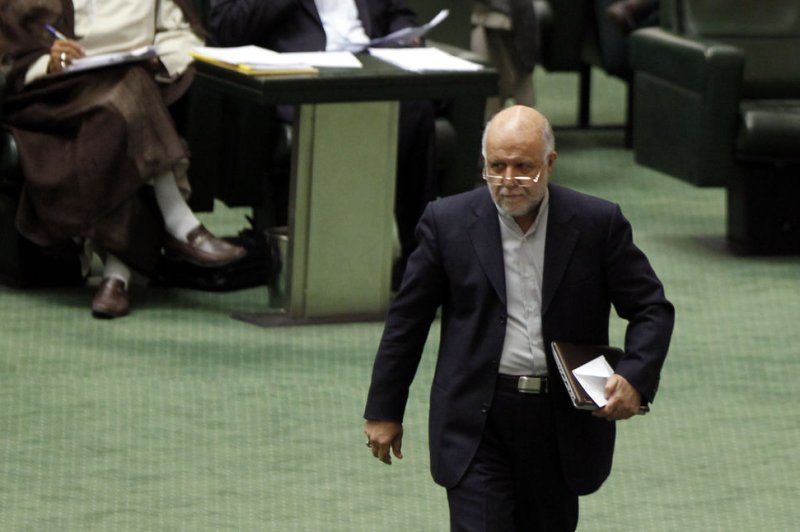Iranian Oil Minister Bijan Zanganeh says curbing oil production has always been a difficult task for members of OPEC. File photo by Maryam Rahmanian/UPI |
License Photo
June 21 (UPI) -- Cutting back on production levels is a difficult task for members of the Organization of Petroleum Exporting Countries, Iran's oil minister said Wednesday.
Iran ranks third among OPEC member states in terms of proven crude oil reserves. Production has been more or less steady since the fourth quarter of 2016 at 3.7 million barrels per day, though that's up about 8 percent from 2016. While other OPEC members are cutting output in a coordinated effort to balance the market, Iran can increase production as it works to recapture a market share lost to global sanctions.
Speaking from Tehran, Oil Minister Bijan Zanganeh said his country was in talks with other OPEC members on current market conditions. With a steady gain in U.S. shale oil production, and production increases from some members within OPEC, the price of crude oil has been on a steady decline for most of June.
OPEC last month decided to extend their production agreement by three months to March 2018, rather than opt for deeper cuts. Iran's oil minister said it was too early to consider extraordinary action even as oil prices lose sight of $50 per barrel.
"Curbing production has always been a difficult task in OPEC," he was quoted as saying by the ministry's news website SHANA.
Zangeneh said late last year that most deals managed by OPEC had fallen short of design, adding there were no guarantees the production agreement would be enforced.
The OPEC move relies in part on production cuts from non-member states, with Russia accounting for the bulk of the expected declines. Economists with Societe Generale said in December, the month before the deal was implemented, that Russia had a poor track record when it comes to managed declines, but noted the personal investment in the cut from President Vladimir Putin was indicative of a willingness to cooperate.
Much of the managed decline from OPEC would come from Saudi Arabia, which has outlined efforts to add more non-oil revenue to its economy. Iran and Saudi Arabia are historic rivals and Zangeneh said competition among member states was fierce.
Saudi Arabia produced 9.94 million barrels per day in May, a slight increase from the previous month. Only four of the 13 members of OPEC reported production declines from April to May.















